De Britse schrijver en cameraman Jasper Fforde werd geboren op 11 januari 1961 in Londen. Zie ook mijn blog van 11 januari 2008.
Uit: The Big Over Easy
„It was the week following Easter in Reading, and no one could remember the last sunny day. Gray clouds swept across the sky, borne on a chill wind that cut like a knife. It seemed that spring had forsaken the town. The drab winter weather had clung to the town like a heavy smog, refusing to relinquish the season. Even the early bloomers were in denial. Only the bravest crocuses had graced the municipal park, and the daffodils, usually a welcome splash of color after a winter of grayness, had taken one sniff at the cold, damp air and postponed blooming for another year.
A police officer was gazing with mixed emotions at the dreary cityscape from the seventh floor of Reading Central Police Station. She was thirty and attractive, dressed up and dated down, worked hard and felt awkward near anyone she didn’t know. Her name was Mary. Mary Mary. And she was from Basingstoke, which is nothing to be ashamed of.”Mary?” said an officer who was carrying a large potted plant in the manner of someone who thinks it is well outside his job description. “Superintendent Briggs will see you now. How often do you water these things?”

Jasper Fforde (Londen, 11 januari 1961)
De Duitse dichteres en schrijfster Katharina Hacker werd geboren op 11 januari 1967 in Frankfurt am Main. Zie ook mijn blog van 11 januari 2007 en ook mijn blog van 11 januari 2008.
im Oktober
die Farbe platzt ab von den Augen
während der Tag überm Dach den Wind
antreibt und Geruch nach Weihrauch
aus einem Gebüsch steigt Bussardrufe
unablässig tönen und Flugzeuge aller Arten
Passanten sind hier überall promenieren
wie in der Stadt Hunde voran und
leichtes Schuhwerk an den Füßen
während die Landschaft sich vernutzt
unter den täglichen Blicken
werden die Farben von Tag zu Tag
kühner platzen ab von den Augen
Katharina Hacker (Frankfurt am Main, 11 januari 1967)
De Amerikaanse schrijver en columnist Marc Acito werd geboren op 11 januari 1966 in Bayonne, New Jersey. Zijn humoristische roman How I Paid for College leverde hem in 2005 de Oregon Book Award op. In 2008 verscheen het vervolg Attack of the Theater People. Acito schrijft ook de column “The Gospel According to Marc”, die vier jaar lang verscheen in negentien verschillende homo-magazines. Zijn humoristische essays verschenen o.a. in The New York Times en Portland Monthly magazine.
Uit: How I Paid for College
“The story of how I paid for college begins like life itself–in a pool of water. Not in the primordial ooze from which prehistoric fish first developed arms and crawled onto the shore but in a heavily chlorinated pool of water in the backyard of Gloria D’Angelo’s split-level ranch in Camptown, New Jersey.
Aunt Glo.
She’s not my aunt, really, she’s my friend Paula’s aunt, but everybody calls her Aunt Glo and she calls us kids the LBs, short for Little Bastards.
Aunt Glo yells. Always yells. She yells from the basement where she does her son the priest’s laundry. She yells from the upstairs bathroom, where she scrubs the tub to calm her nerves. And she yells from her perch behind the kitchen sink, where she stirs her marinara sauce and watches us float in the heavily chlorinated pool of water.
Like life itself, the story of how I paid for college begins with a yell.
“Heeeeeey! Are you two LBs gonna serenade me or what?”
Paula and I mouth to each other, “Ya’ can’t lie around my pool for nothin’, y’know.”
I roll over on the inflatable raft, giving a tug on my PROPERTY OF WALLINGFORD HIGH SCHOOL ATHLETIC DEPT. shorts so they don’t stick to my nuts. (I wear the shorts ironically–a tribute to the one purgatorial semester I spent on the track team.) I reach over to turn down the radio, where Irene Cara is having a Flashdance feeling for like the gazillionth time today, and turn to look at Paula.”

Marc Acito (Bayonne, 11 januari 1966)
De Griekse dichter, schrijver en zeeman Nikos Kavvadias werd geboren op 11 januari 1910 in Nikolski Ousouriski, een plaatsje bij Harbin, een miljoenenstad in Mantsjoerije, als zoon van veel reizende, Griekse ouders. Zij keerden in 1921 terug naar Pireus. Kavvadias werd uiteindelijk in 1939 radio-officier, maar kon door WO II pas als zodanig gaan varen vanaf 1944. Zijn eerste dichtbundel “Marabou” verscheen in 1933. In 1947 volgde “Pousi” en pas in 1975 “Traverso”. Zijn enige roman
(Eng:) “Nightshift” (De Wacht) verscheen in 1954.
Mal du depart
Always the perfect, unworthy lover
of the endless voyage and azure ocean,
I shall die one evening, like any other,
without having crossed the dim horizon.
For Madras, Singapore, Algeria, Sfax,
the proud ships will still be setting sail,
but I shall bend over a chart-covered desk
and look in the ledger, and make out a bill.
I’ll give up talking about long journeys,
My friends will think I’ve forgotten at last;
my mother will be delighted: she’ll say
“A young man’s fancy, but now it’s passed.”
But one night my soul will rise up before me,
and ask, like some grim executioner, “Why?”
This unworthy trembling hand will take arms
and fearlessly strike where the blame must lie.
And I, who longed to be buried one day
in some deep sea of the distant Indies
shall come to a dull and common death;
shall go to a grave like the graves of so many.
Fog
The fog fell with the evening
— the lightship lost —
and you arrived unexpected
in the pilot-house to see me.
You are wearing all white and you’re wet,
I’m plaiting your hair into ropes.
Down in the waters of Port Pegassu
It always rains this season.
The stoker is watching us
with both feet in the chains.
Never look at the antennas
in a storm; you’ll get dizzy.
The boatswain curses the weather
and Tokopilla is so far away.
Rather than fearing and waiting
better at the periscope and the torpedo.
Go! You deserve firm land.
You came to see me and yet see me you didn’t
I have since midnight drowned
a thousand miles beyond the Hebrides.
Vertaald door Tefkros Symeonides
Nikos Kavvadias (11 januari 1910 – 10 februari 1975)
De Braziliaanse schrijver Oswald de Andrade werd geboren op 11 januari 1890 in São Paulo. Zie ook mijn blog van 11 januari 2007.
Uit: Sentimental Memoirs of João Miramar (fragment)
Sorrento
Crones sails cicadas
Mists on the Vesuvian sea
Geckoed gardens and golden women
Between walls of garden-path grapes
Of lush orchards
Piedigrotta insects
Gnawing matchboxes in the trouses pocket
White trigonometries
In the blue crepe of Neapolitan waters
Distant city siestas quiet
Amidst scarves thrown over the shoulder
Dotting indigo grays of hillocks
An old Englishman slept with his mouth open
like the blackened mouth of a tunnel beneath civilized
eyeglasses.
Vesuvius awaits eruptive orders from Thomas Cook & Son.
And a woman in yellow informed a sport-shirted individual
that marriage was un unbreakable contract.
Sal o May
The cabarets of São Paulo are remote
As virtues
Automobiles
And the intelligent signal lights of the roads
One single soldier to police my entire homeland
and the cru-cru of the crickets creates bagpipes
And the toads talk twaddle to easy lady toads
In the obscure alphabet of the swamps
Vowels
Street lamps night lamps
And you appear through a clumsy and legendary fox trot
Vertaald door Jack E. Tomlins
Oswald de Andrade (11 januari 1890 – 22 oktober 1954)
De Spaanse schrijver Eduardo Mendoza werd geboren in Barcelona op 11 januari 1943. Zie ook mijn blog van 11 januari 2007 en ook mijn blog van 11 januari 2008.
Uit: De stad der wonderen (Vertaald door F. Mendelaar, H. Peteri, Harriët Peteri)
“Het jaar dat Onofre Bouvila in Barcelona aankwam heerste er een koortsachtige bedrijvigheid in de stad. Barcelona ligt in de vallei tussen Malgrat en Garraf, daar waar het kustgebergte enigszins naar het binnenland terugwijkt en zodoende een soort amfitheater vormt. Het klimaat is er zacht en zonder schommelingen: de lucht is er meestal licht en helder, de weinige wolken die er soms hangen zijn wit; het weer is stabiel; het regent er zelden, maar als het regent is het onverwachts en zeer hevig. Hoewel de meningen hierover uiteenlopen, worden over het algemeen de eerste en tweede stichting van Barcelona aan de Phoeniciërs toegeschreven. In ieder geval weten we dat Barcelona in de geschiedenis voor het eerst genoemd wordt als kolonie van Carthagol bondgenoot van Sidon en Tyrus. Het staat vast dat de olifanten van Hannibal er halt hebben gehouden om te drinken en te baden aan de oevers van de Besós of de Llobregat, op weg naar de Alpen waar de koude en de grilligheid van het terrein hen heeft gedecimeerd. De eerste Barcelonezen waren stomverbaasd bij het zien van die dieren. Moet je die slagtanden zien, die oren, die slurf, zelden ze tegen elkaar. De algehele verbazing en de verhalen die nog jarenlang de ronde deden bezorgden Barcelona het imago van een stad; in de 19de eeuw zouden de Barcelonezen hun uiterste best doen dit imago, dat inmiddels verloren was gegaan, te herstellen. Na de Phoeniciërs kwamen de Grieken en de Layetanen.”

Eduardo Mendoza (Barcelona, 11 januari 1943)
De Amerikaanse schrijfster Diana Gabaldon werd op 11 januari 1952 geboren in Williams, Arizona. Ze studeerde zoologie, biologie ecologie. Vervolgens werkte zij als docente en computerspecialiste aan de Northern Arizona University. In 1991 publiceerde zij haar eerste boek Outlander, dat meteen een succes werd. De Outlander-serie kan men omschrijven als historische liefdesromans. Opvallend is dat zij fragmenten van haar werk voor het eerst openbaar maakte op een literair forum op internet in een tijd dat dit medium nog maar net in opkomst was.
Uit: Outlander
„Jamie made a fire in a sheltered spot, and sat down next to it. The rain had eased to a faint drizzle that misted the air and spangled my eyelashes with rainbows when I looked at the flames.
He sat staring into the fire for a long time. Finally he looked up at me, hands clasped around his knees.
“I said before that I’d not ask ye things ye had no wish to tell me. And I’d not ask ye now; but I must know, for your safety as well as mine.” He paused, hesitating.
“Claire, if you’ve never been honest wi’ me, be so now, for I must know the truth. Claire, are ye a witch?”
I gaped at him. “A witch? You—you can really ask that?” I thought he must be joking. He wasn’t.
He took me by the shoulders and gripped me hard, staring into my eyes as though willing me to answer him.
“I must ask it, Claire! And you must tell me!”
“And if I were?” I asked through dry lips. “If you had thought I were a witch? Would you still have fought for me?”
“I would have gone to the stake with you!” he said violently. “And to hell beyond, if I must. But may the Lord Jesus have mercy on my soul and on yours, tell me the truth!”
The strain of it all caught up with me. I tore myself out of his grasp and ran across the clearing. Not far, only to the edge of the trees; I could not bear the exposure of the open space. I clutched a tree; put my arms around it and dug my fingers hard into the bark, pressed my face to it and shrieked with hysterical laughter.”

Diana Gabaldon (Williams,11 januari 1952)
De Oostenrijkse schrijver Helmut Zenker werd geboren op 11 januari 1949 in St. Valentin. Hij volgde een pedagogische opleiding in Wenen. In 1969 was hij medeoprichter van het literaire tijdschrift „Wespennest“. Sinds 1973 werkte hij als zelfstandig schrijver. Zijn bekendste creatie is die van de Weense rechercheur Major Kottan, waaop een televisieserie gebaseerd is. Maar Zenker schreef ook romans, korte verhalen, kinderboeken, gedichten, draaiboeken en hoorspelen.
Uit: Mondgeschichten
„Alle Planeten haben schönere Namen als die Erde und mehrere Monde, die auch schöne Namen haben. Nur der Mond heißt nur Mond und ist traurig und ganz allein. Deswegen schläft er so viel. Die nächste Mondfinsternis hat er schon abgesagt.
Der Mond ist kein Sonnenanbeter. Nie gewesen, im Gegenteil: Bekanntlich schützt er sich seit langem mit Piz Buin (Schutzfaktor 36) gegen die Sonne, die ein notorischer Zündler in der Milchstraße ist. Außer einem Sonnenbrand hat sie ihm keinen zweiten anhängen können, nur einmal einen Sonnenstich, weil der Mond am helllichten Tag kurz eingeschlafen war. Die Planeten haben sich lang genug deswegen krank gelacht. Aber Planeten sind leicht zu unterhalten.“
Helmut Zenker (11 januari 1949 – 7 januari 2003)
De Macedonische dichter en schrijver Slavko Janevski werd geboren op 11 januari 1920 in Skopje. Hij voltooide daar de technische school. Tijdens WO II verbleef hij in Belgrado. Na de oorlog werkte hij weer in Skopje als uitgever en redacteur bij verschillende tijdschriften. Janevski was een van de eerste schrijvers van het communistische Joegoslavië. Hij schreef talrijke gedichten, verhalen, romans, kinderboeken, draaiboeken en essays.
Flowers
In Tikves somewhere, in some village
where frost quietly wilted a flower
they killed a child.
The last tear from eye had dropped…
when on the hill autumn had stepped,
in blood bathed the white morning.
And when in sunshine the iron glittered
the last thought like a bird flew:
“My mother is left alone in the village”.
Oh, childish eyes!
Hiding in oneself sky corner…
Red blood running in veins
happiness without rest…
Where child’s eye melted earth
mountain flower sprouted, spring had arrived,
where boiling blood melted frost
the red rose embellished field.
The May rose and flower blue
beg to smell their scent:
“Embellished, friend, the flamed rifle
with flowers young,
then forward go other children
shield with chests”.
In Tikves somewhere, in some village
where frost quietly wilted a flower
they killed a child.
Looking For An Answer
It left his skin on a stone
and turned into stone. A viper.
It grunted from rifle shots
and turned into mist. A wild boar.
It washed its eyes in foam
and turned into a sigh. Day.
In the village of Vrazi Dol
Old father Time has sat down on a stone
and on his fingers
of wisdom
calculates
how many drops of blackberry wine are needed
to prolong his life.
You can ask yourself and still you won’t know:
Does time die with man?
Slavko Janevski (11 januari 1920 – 20 januari 2000)
De Duitstalige, joodse, schrijfster Ilse Weber werd geboren op 11 januari 1903 in Witkowitz, Tsjechoslowakije. Toen zij veertien jaar was schreef zij al sprookjes en kleine theaterstukken voor kinderen. Deze werden in Duitse, Tsjechische, Oostenrijkse en Zwitserse kranten gepubliceerd. Op 6 februari 1942 werd zij vanuit Praag naar Theresienstadt gedeporteerd. Daar werkte zij als verpleegster. In het kamp schreef zij ook nog steeds gedichten. Het gedicht “Ich wandre durch Theresienstadt” schreef zij vor haar zoon Hans, die zij voor het uitbreken van de oorlog in Praag op een trein had gezet. Haar zoon overleefde de oorlog inderdaad, maar zijn moeder en zijn broer Tommy stierven op 6 oktober 1944 in Auschwitz.
Ich wandre durch Theresienstadt
Ich wandre durch Theresienstadt,
das Herz so schwer wie Blei,
bis jäh mein Weg ein Ende hat,
dort knapp an der Bastei.
Dort bleib ich auf der Brücke stehn
und schau ins Tal hinaus:
Ich möcht so gerne weitergehn,
ich möcht so gern – nach Haus!
»Nach Haus!« – du wunderschönes Wort,
du machst das Herz mir schwer,
man nahm mir mein Zuhause fort,
nun hab ich keines mehr.
Ich wende mich betrübt und matt,
so schwer wird mir dabei,
Theresienstadt, Theresienstadt
– wann wohl das Leid ein Ende hat –
wann sind wir wieder frei?
Ilse Weber (11 januari 1903 – 6 oktober 1944)
De Zuidafrikaanse schrijver en politicus Alan Stewart Paton werd geboren op 11 januari 1903 in Pietermaritzburg. Hij studeerde aan de universiteit van Natal. Na zijn studie werkte hij o.a als hoofd van de „verbeteringsschool“ in Johannesburg, waar hij opvallende resultaten boekte met jonge deliquenten. De roman die hem wereldberoemd maakte was “Cry the Beloved Country“ uit 1948 die de aandacht vestigde op het lot van de zwarte Afrikaners. Paton was mede-oprichter van de Liberale Partij.
Uit: Cry the Beloved Country
„There is a lovely road that runs from Ixopo into the hills. These hills are grass-covered and rolling, and they are lovely beyond any singing of it. The road climbs seven miles into them, to Carisbrooke; and from there, if there is no mist, you look down on one of the fairest valleys of Africa. About you there is grass and bracken and you may hear the forlorn crying of the titihoya, one of the birds of the veld. Below you is the valley of the Umzimkulu, on its journey from the Drakensberg to the sea; and beyond and behind the river, great hill after great hill; and beyond and behind them, the mountains of Ingeli and East Griqualand.
The grass is rich and matted, you cannot see the soil. It holds the rain and the mist, and they seep into the ground, feeding the streams in every kloof. It is well-tended, and not too many cattle feed upon it; not too many fires burn it, laying bare the soil. Stand unshod upon it, for the ground is holy, being even as it came from the Creator. Keep it, guard it, care for it, for it keeps men, guards men, cares for men. Destroy it and man is destroyed.
Where you stand the grass is rich and matted, you cannot see the soil. But the rich green hills break down. They fall to the valley below, and falling, change their nature. For they grow red and bare; they cannot hold the rain and mist, and the streams are dry in the kloofs. Too many cattle feed upon the grass, and too many fires have burned it. Stand shod upon it, for it is coarse and sharp, and the stones cut under the feet. It is not kept, or guarded, or cared for, it no longer keeps men, guards men, cares for men. The titihoya does not cry here any more.“
Alan Stewart Paton (11 januari 1903 – 12 april 1988)
De Amerikaanse dichter, criticus, vertaler en reisschrijver Bayard Taylor werd geboren op 11 januari 1825 in Kennett Square in Chester County, Pennsylvania. In 1844 verscheen zijn eerste dichtbundel Ximena, or the Battle of the Sierra Morena, and other Poems. Het functioneerde voor hem in elk geval als een visitekaartje om aangenomen te worden bij The New York Tribune. Hij kreeg een voorschot voor journalistiek werk in Europa. Hij reisde door Engeland, Frankrijk, Duitsland en Italië. Dat hij een geboren reiziger was bleek wel uit het feit dat zijn voettocht die twee jaar duurde hem niet meer dan 100 dollar kostte. Zijn verslagen stuurde hij naar The New York Tribune, The Saturday Evening Post, en The United States Gazette. Zij werden zozeer gewaardeerd dat hem werd aangeraden ze te bundelen. Tayler maakte nog vele reizen, o.a. naar het Midden Oosten, waar hij zich erg thuis voelde.
Uit: The Lands of the Saracen
“We ascended to Mount Carmel. The path led through a grove of carob trees, from which the beans, known in Germany as St. John’s bread, are produced. After this we came into an olive grove at the foot of the mountain, from which long fields of wheat, giving forth a ripe summer smell, flowed down to the shore of the bay. The olive trees were of immense size, and I can well believe, as Fra Carlo informed us, that they were probably planted by the Roman colonists, established there by Titus. The gnarled, veteran boles still send forth vigorous and blossoming boughs. There were all manner of lovely lights and shades chequered over the turf and the winding path we rode. At last we reached the foot of an ascent, steeper than the Ladder of Tyre. As our horses slowly climbed to the Convent of St. Elijah, whence we already saw the French flag floating over the shoulder of the mountain, the view opened grandly to the north and east, revealing the bay and plain of Acre, and the coast as far as Ras Nakhura, from which we first saw Mount Carmel the day previous. The two views are very similar in character, one being the obverse of the other. We reached the Convent–Dayr Mar Elias, as the Arabs call it–at noon, just in time to partake of a bountiful dinner, to which the monks had treated themselves. Fra Carlo, the good Franciscan who receives strangers, showed us the building, and the Grotto of Elijah, which is under the altar of the Convent Church, a small but very handsome structure of Italian marble. The sanctity of the Grotto depends on tradition entirely, as there is no mention in the Bible of Elijah having resided on Carmel, though it was from this mountain that he saw the cloud, “like a man’s hand,” rising from the sea. The Convent, which is quite new– not yet completed, in fact–is a large, massive building, and has the aspect of a fortress.”

Bayard Taylor (11 januari 1825 – 19 december 1878)

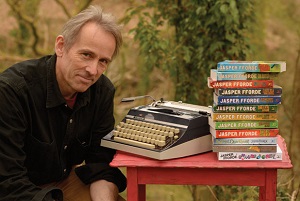

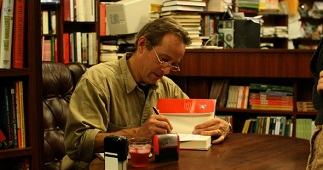
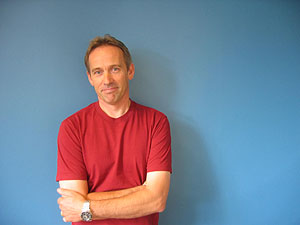
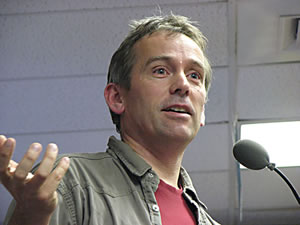
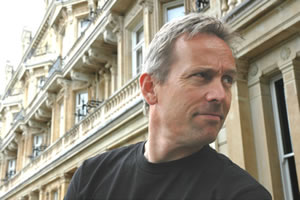








![nikos_kavvadias[1] nikos_kavvadias[1]](https://romenu553547602.files.wordpress.com/2009/01/acba6-dyn006_original_183_300_pjpeg_2535747_681ed1410d546c1d0d1ef2d21630d3c1.jpg)










